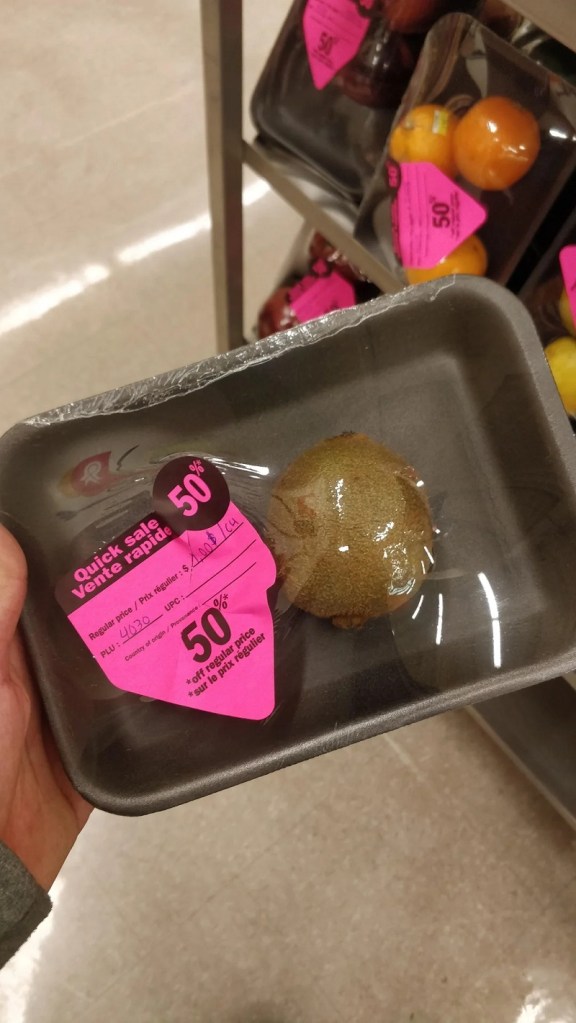A trip to the produce aisle used to mean selecting unwrapped fruits and veggies from the displays and weighing them to get the correct amount. But more and more often today, the raw produce comes prepackaged with the quantity and price already set — and often there's way too much plastic involved.
One shopper shared a depressing example from a trip to the store where they found individual kiwis packaged for sale.
What happened?
This Redditor shared their experience in r/awfuleverything, a complaint subreddit. "Singular kiwi wrapped in way too much plastic," they said, adding a photo to prove it.

The picture shows one very small kiwi fruit on a black styrofoam tray, sealed in with shrink wrap. A large pink sticker has it marked for "quick sale." Although the sticker proclaims the item is 50% off, the original price of the kiwi was a whopping $1.
"$1 a kiwi? They're charging you for all that wrapping!" said an amused commenter.
Why does the plastic tray matter?
As the commenter said, unnecessary packaging drives up costs for sellers, who pass those expenses on to buyers via higher retail prices. Meanwhile, consumers are stuck dealing with the annoying plastic trash, which is often difficult or impossible to recycle.
Plastic of this type will likely end up in a landfill, taking up space while it waits 100 years or more to break down. But it could also make its way onto the street or into the ocean, adding to a growing trash problem while shedding cancer-causing microplastics.
Why is the company packaging fruit this way?
One commenter offered a potential explanation for the seemingly nonsensical packaging practice.
"I was curious and looked up why this happens," they said. "It seemed part to ensure organic produce is checked out at the right price, and because some consumers think it's a sign it is really organic and wasn't mixed with non-organic products."
It's not clear whether that reasoning applies in this case, however. The packaging does not indicate that this is an organic kiwi, and the photo doesn't include any signage that might identify it as such.
What can you do to cut back on plastic packaging?
There are several potential sources for plastic-free produce. When it comes to basic garden items like tomatoes, you can grow your own to guarantee they're 100% waste-free.
For other items, you can look for local growers that use minimal packaging. Not only does this reduce plastic waste, but you can often find higher-quality, riper produce this way, because it doesn't have to be shipped long-distance.
Finally, look for stores and brands that haven't embraced the plastic packaging frenzy.
Join our free newsletter for easy tips to save more, waste less, and help yourself while helping the planet.









